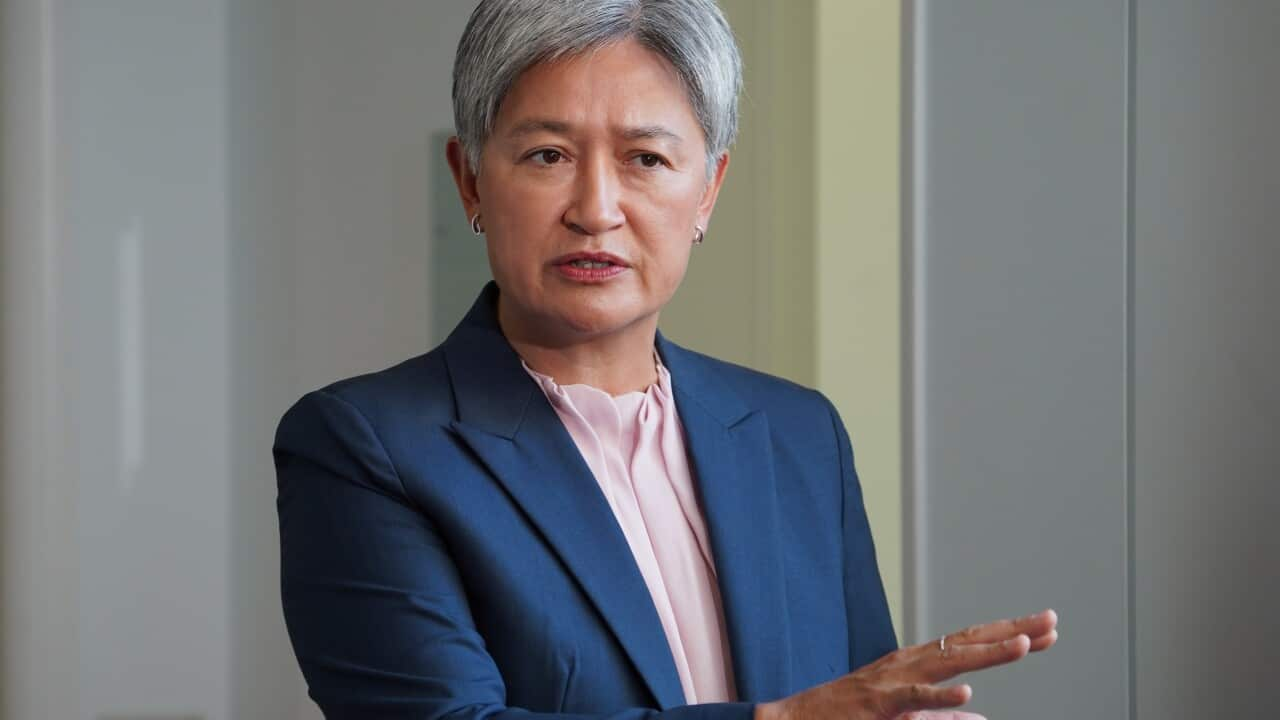The sea ice in the Southern Ocean around Antarctica is often described as the beating heart of the earth - it normally forms during winter and melts during summer.
But this year, with records lows in ice levels recorded, scientists from across the globe are issuing what they're labelling a clarion call to the world's governments about the need for an urgent expansion of scientific work in the area.
The call has been made at the first-ever international conference of the Southern Ocean Observing System, or S-O-O-S, held in Hobart.
Dr Andrew Meijers is the Deputy Science Leader at the Polar Oceans Program at the British Antarctic Survey.
He says that scientists are unable to fully explain the record lows in sea ice and predict rising sea levels in the Antarctic.
"The current very rapid change in sea ice, we didn't see this coming. And we definitely are currently struggling to understand what's actually driving that. The Antarctic Ocean also really drives melting of the Antarctic ice sheet, and presently there is a huge uncertainty. By the end of the century it might be 30 centimetres, it might be a meter and a half. And by the end of the next century it might be up to ten metres, and that is really driven by our lack of understanding of the Antarctic ice sheet and how it melts."
This uncertainty has prompted a group of 300 scientists from 25 countries to call for a sustained and coordinated Southern Ocean Observing system.
They are citing a chronic lack of observations, which is challenging their ability to detect and assess the consequences of change.
Dr Sian Henley, the Co-Chair of S-O-O-S, says that scientists and policy-makers need to work together before it is too late.
"It's a race between the science and whatever the changes that are occurring that the science is seeking to measure. So we need urgent action in science but also in communication of science to policy, to get the decision-makers to understand what's happening, what may happen in the future and how we can best manage those changes"
While the Southern Ocean remains one of the most under-observed regions on the planet, scientists know more about its role in absorbing heat and carbon, as Dr Meijers explains.
"Because the Southern Ocean does take up these massive reservoirs of heat and carbon, if that changes that will go into the atmosphere, will remain in the atmosphere, and that will have massive acceleration potential for the global climate."
Dr Meijers says that one way to improve the data would be to expand a cost-effective robotic monitoring program that is already being used extensively across the globe.
"So currently, we observe the ocean via a series of mini floats that are deployed and they measure the top two kilometres of the ocean. And they observe 75 per cent of the Earth's entire surface. That costs around 40 million Australian a year, which is an absolute bargain to measure that much of the world, but they don't measure around Antarctica particularly in the sea ice, under the ice shelves or in the deep ocean. So we're really asking that that is expanded and pushed, so the technologies that we need to do this sort of work do exist."
The consequences of these dramatic changes are potentially devastating for wildlife in the Antarctic.
Sea ice habitats and the species that rely on it from the iconic emperor penguin down to tiny krill are being pushed to their limits.
Dr Henley says that there are also significant concerns about its impact on humans.
"The animals in the Southern Ocean contribute directly to fisheries which feed the world's population, so supports fisheries of the West Coast of Africa for example, which is of huge economic value, but also critically important in underpinning food security for significant portions of the world's population."
For the scientists meeting at the Southern Ocean Observing System in Hobart, understanding the changes occurring in the Southern Ocean is crucial to preparing for the future.





